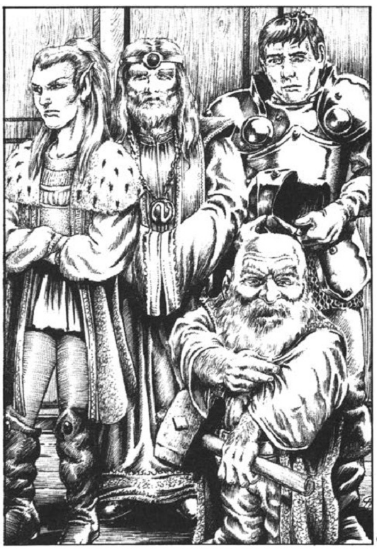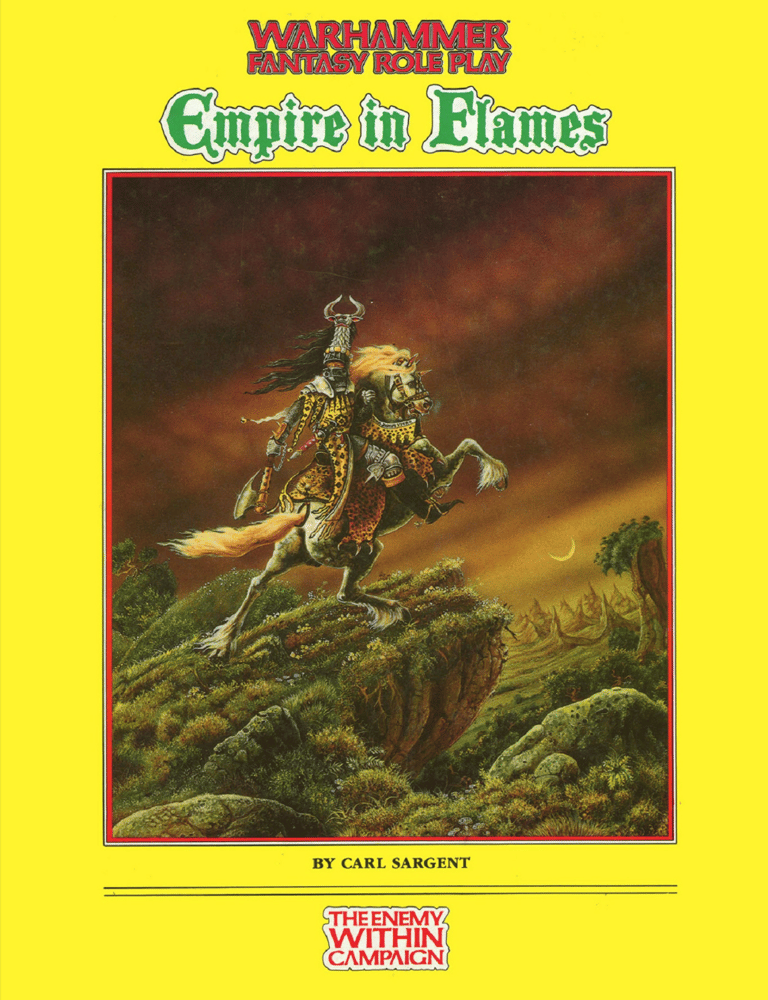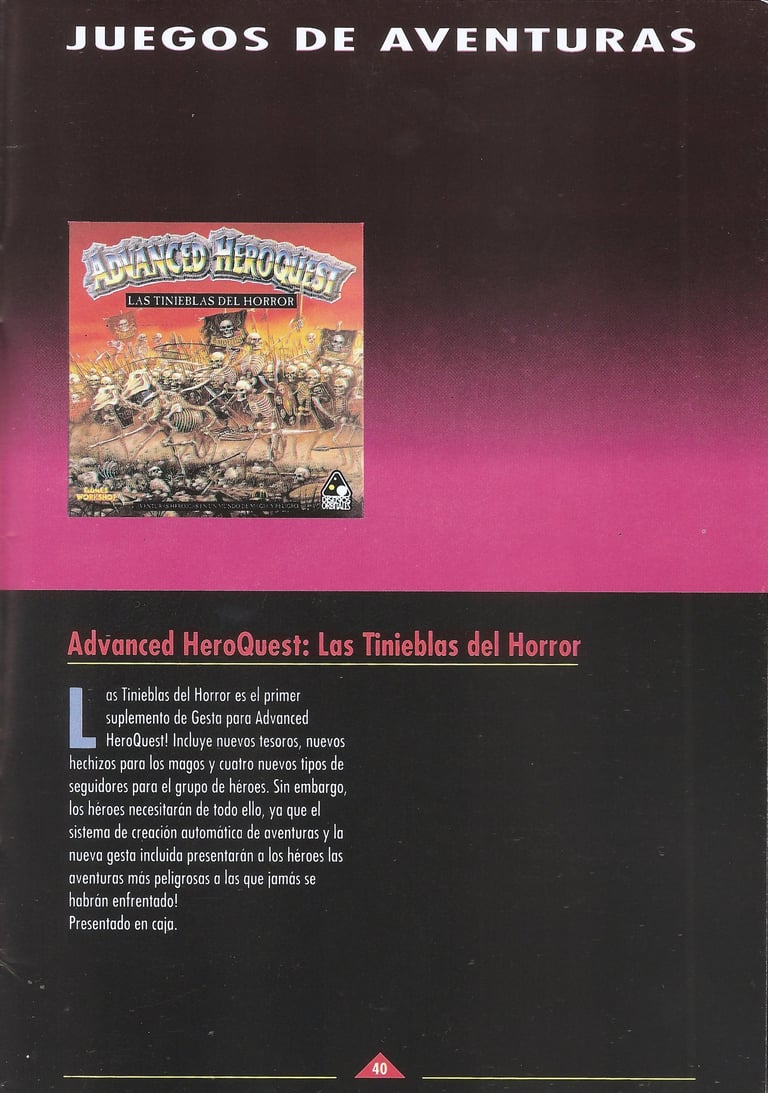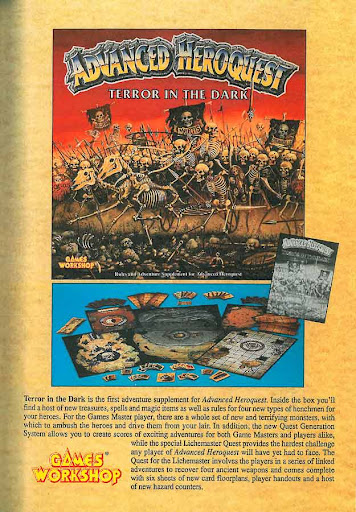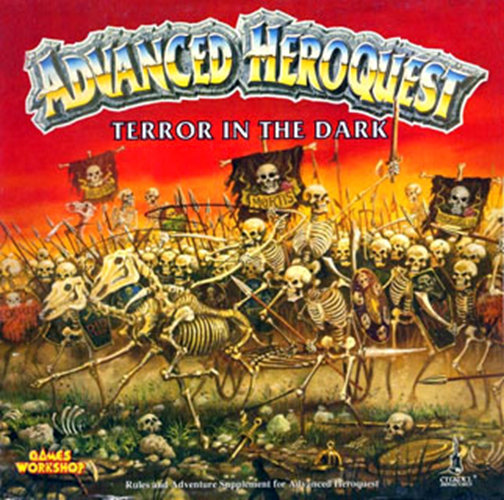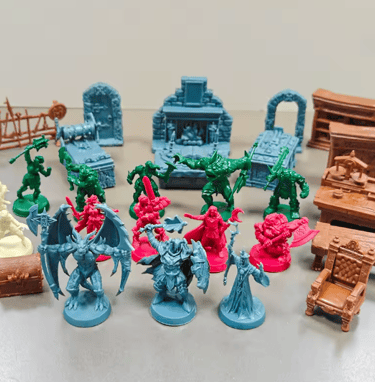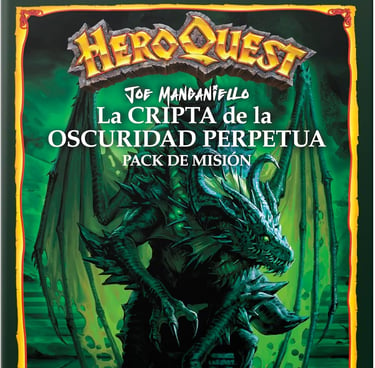Graeme Davis - English version
ENTREVISTAS
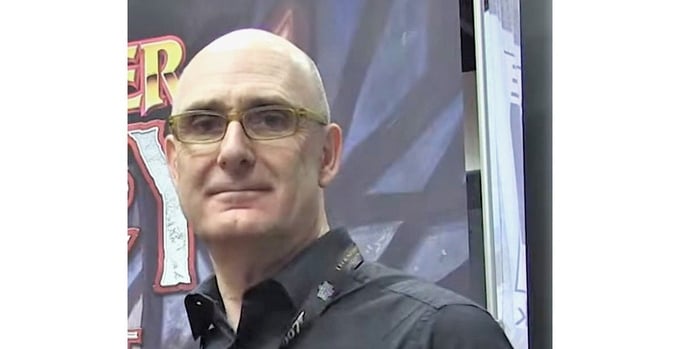

Today, we have the pleasure of interviewing Graeme Davis, a game designer and writer known for titles such as Warhammer Fantasy Roleplay and the expansion Advanced Heroquest: Terror in the Dark, among many other publications.
I would like to thank Pablo from the Advanced Heroquest Telegram group and HispaZargon from Ye Olde Inn for his collaboration in formulating the questions for this interview.
Full interview with Graeme Davis
First of all, congratulations to you and everyone involved in Advanced Heroquest (AHQ). Although initially considered a niche, this game is now regarded as one of the best dungeon crawler experiences in gaming history, particularly within the Games Workshop sphere.
We are fortunate to have additional "semi-official" content that you are publishing, and both I and all the fans appreciate you sharing it. Do you currently maintain any ties with Games Workshop (GW) or work on any projects for them? Or are you currently involved in any independent projects?
Graeme Davis: No. Terror in the Dark for AHQ was the last thing I did directly for GW, and the Enemy Within Director’s Cut series was the last thing for any of their properties – though I’ll keep posting memories and (very unofficial) snippets on my blog (https://graemedavis.wordpress.com). Recently, for example, I posted some rules for a new monster in Warhammer 40,000: Rogue Trader, based on a joke from Rick Priestley in 1986.
As far as independent projects are concerned, my “Monster of the Month Club” Patreon campaign is now in its fifth month, presenting in-depth, system-agnostic monster treatments of creatures from myth and folklore along with other monster-related materials. You can find it at https:// https://www.patreon.com/MonsteroftheMonthClub, and there is a collection of free samples to try before you decide whether or not to back the project. Other than that, I work in video games full time (my current project is at https://mythwalker.com), and I recently finished writing a “Rough Nights” style multi-plot adventure for Old School Essentials, as a thank-you to Italian publisher Mondiversi for hosting me at UmbriaCon in January.
When did you first hear about GW’s idea of creating an expansion for AHQ? Had you ever played the base game or were you involved in its development in any way?
GD: I was involved with Heroquest and AHQ from the very start. Alongside Jervis Johnson, I sat in on early meetings with Milton Bradley’s Steve Baker to scope out Heroquest, and I edited and developed Jervis’s work just as I did with Adeptus Titanicus and some of his other titles. There was always a plan – written into the contract with MB, as I recall – that GW would develop an Advanced Heroquest game. The idea was to use the Milton Bradley game to get us an indirect foothold in mainstream game and toy shops (for whom Warhammer was too niche and hobbyist), and then the name recognition of Advanced Heroquest would funnel lots of new recruits toward Warhammer.
Can you broadly describe the development process of the Terror in the Dark expansion for a game like AHQ? Did you have a testing team for the base game and the expansion? Did you have any contact with Jervis Johnson during the process? Anyone else from the base game team?
GD: It was all pretty simple, mainly because I had left GW before I started work on these. I drew up detailed outlines of what “untitled Advanced Heroquest Undead Supplement” would contain and submitted it just like any other freelancer. I also submitted an outline for an “Advanced Heroquest Companion.” Both were accepted, contracts were issued, and I wrote them according to the agreed outlines. I had no direct contact with Jervis during this process because I had moved to the United States and these were pre-internet times. When I was done writing, I snailmailed the manuscripts to GW on a floppy disk.
Terror in the Dark was developed by Carl Sargent at Flame Publications, and ended up as a hybrid of the two manuscripts, with a long campaign written by him. As you’ve seen, a lot of my work was not used. I can’t speak to the testing process, but any testing would have been done by Flame.
After publishing the outtakes from AHQ - Terror in the Dark, and seeing that many fans keep the game alive, do you consider writing something new for the game in the future? For example, a completely new adventure?
GD: No plans at the moment, but I never say never! To be honest, I wasn’t sure if anyone still cared about AHQ when I started posting the outtakes, but it seems people do! I’m very rusty on the rules, though, and would have to get back up to speed before I even considered writing anything. So – maybe, but don’t hold your breath!
The base game of AHQ includes a section for playing with the board and furniture from Heroquest (HQ). Did you have any contact with someone from the HQ team at Milton Bradley (MB) at any point? Did you consider adding another section in Terror in the Dark to integrate another HeroQuest expansion?
GD: No. After the base Heroquest and Advanced Heroquest sets were released, MB went their own way and GW went theirs. I did submit a list of requests for card components, but I never looked in detail at any of the Heroquest expansions, so – lacking an internet to look them up – I had no idea what components they might offer.
You wrote the Terror in the Dark expansion together with Carl Sargent. How was it working with him? There is a Warhammer Fantasy Roleplay (WFRP) campaign called Empire in Flames, in which you also collaborated with Carl Sargent, and we can see illustrations of AHQ heroes in that book. What is the relationship between this WFRP adventure and AHQ? Or is it merely a coincidence that these illustrations were used?
GD: My answer to Question 3 covers the first part of this question. I didn’t so much work with Carl on Terror in the Dark as hand it off to him and he developed it as he saw fit.
The appearance of the AHQ heroes in Empire in Flames was the result of GW policy toward Flame Publications. We had Tony Ackland as our only source of original artwork, and all other needs had to be filled from the existing GW archive – which consisted mostly of art that had already been published for Warhammer, WFRP, or AHQ. This was to keep costs down, because GW management regarded roleplaying games as unprofitable and Flame was a last-ditch effort to publish roleplaying material with all costs cut to the bone.
The Terror in the Dark expansion came without miniatures. Do you know if this was a strategy by Citadel Miniatures to sell more miniatures or simply due to budget constraints?
GD: I don’t know. Since it had been handed over to Flame to develop and publish, I think that GW management had lost interest in AHQ just as they had lost interest in WFRP. At that time the range of plastic miniatures was in its infancy anyway, so designing and manufacturing plastic miniatures for Terror in the Dark would have been seen as unprofitable.
Can we assume that the character "The Lichemaster" in Terror in the Dark is actually Heinrich Kemmler from the Warhammer universe?
GD: Yes. Carl had already used him in a WFRP adventure, and he was becoming cemented into Warhammer lore as a recurring villain.
Was there another expansion planned besides Terror in the Dark? If so, what was the theme?
GD: The Advanced Heroquest Companion was a miscellany of ideas and additions, as the title suggests. New monsters, new Heroes, new equipment – that sort of thing. Some of the material appeared in White Dwarf and some in Terror in the Dark (and some in both places, if I remember correctly!), but I found a few unpublished bits and pieces from that title as well, and they are also on my blog.
AHQ is set in the Warhammer universe and is compatible with MB's HQ board game. Although we understand that the latter is "vaguely" based on Warhammer, there has always been a significant part of its player community interested in considering it as part of the Old World as well. In which period of Warhammer's Old-World history do you think MB's official HQ adventures would best fit? Some players think it is most appropriate to assume that the events occur shortly after the coronation of Magnus the Pious. What do you think of that idea?
GD: When I was writing for Advanced Heroquest, I always assumed that it was contemporaneous with WFRP 1st edition, so around IC 2502. It wasn’t until later games like Mordheim that GW products began to explore other periods of the Old World’s history.
Mentor, one of the main characters in MB's HeroQuest, seems to be a very powerful wizard who lives for centuries, guiding groups of heroes from the shadows to combat evil and save the Empire from the threat of its enemies. Are there any known wizards in the Warhammer World who could resemble this profile?
GD: At the time when I was writing, the only wizard of comparable power would have been Constant Drachenfels, and he hardly fits the role of Mentor! I can’t speak to the subsequent development of the Warhammer setting, but my feeling is that Mentor exists only in Heroquest, whose world is adjacent to the Warhammer setting but not the same. In any case, he is more of a plot device than a character.
Regarding Terror in the Dark, we know that the Spanish company Diseños Orbitales planned to market it in Spain under the title “Las Tinieblas del Horror”. It even had a reference number, price, and appeared in some promotional catalog. Do you know if it was planned to market the expansion in more countries besides Spain?
GD: I didn’t even know about Spain! As I said earlier, I had no real insight into what GW or any other publishers were planning for AHQ.
Although for me it is one of the best dungeon crawlers that exist, why do you think AHQ did not achieve the expected success back in the 90s?
GD: Hard to say. I’m sure that Milton Bradley didn’t plan to promote it since they had their own line of Heroquest products and that became quite extensive. Games Workshop didn’t have the marketing reach or budget at that time to push Advanced Heroquest too hard, and I suspect that the whole thing turned into a failed experiment, commercially speaking. The fact that Warhammer Quest was published later proved that they thought dungeon crawlers had some potential, but in the early 90s GW was laser-focused on Warhammer and 40K. Everything else was increasingly seen as a distraction, and the two flagship games won every battle for funding and development resources.
Hasbro has released the remake of HQ in 2021, do you think there is a possibility of something similar happening with AHQ?
GD: I’d love to say yes, but I doubt it. Because Hasbro/MB would have to reach an agreement with GW and GW has other priorities now, I think the contractual side of things would be challenging to say the least – and I expect that Hasbro would be more interested in mining the deep list of Heroquest supplements, which they own outright, before even thinking about AHQ. Even if they republished everything for Heroquest and were looking to do more, it would make better commercial sense for them to create all-new Heroquest material rather than looking to GW and AHQ.
Have you ever played HeroQuest or Warhammer Quest? If so, which one do you prefer between HeroQuest, Advanced Heroquest, or Warhammer Quest? Why?
GD: I played Heroquest and AHQ during their initial development, but I’ve never played Warhammer Quest. At the time, I preferred AHQ because it offered more complexity and breadth. Heroquest was a very solid introductory dungeon crawler, but my early-90s self was not an introductory-level player!
Do you currently play any board games or role-playing games? Which ones?
GD: Not since the pandemic sadly, a couple of friends used to have weekly game nights, but they fell by the wayside and I’ve never got into online play. My job and my Patreon project keep me pretty busy these days, too.
Thank you for your time Graeme, thank you for sharing the unpublished material with the fans, and thank you for your contribution to the game. I believe many authors should follow your example of publishing unreleased material, as there are many people who still play games from that era and remember them fondly.
If you want to know more about Graeme Davis and his publications, please visit his personal blog.
